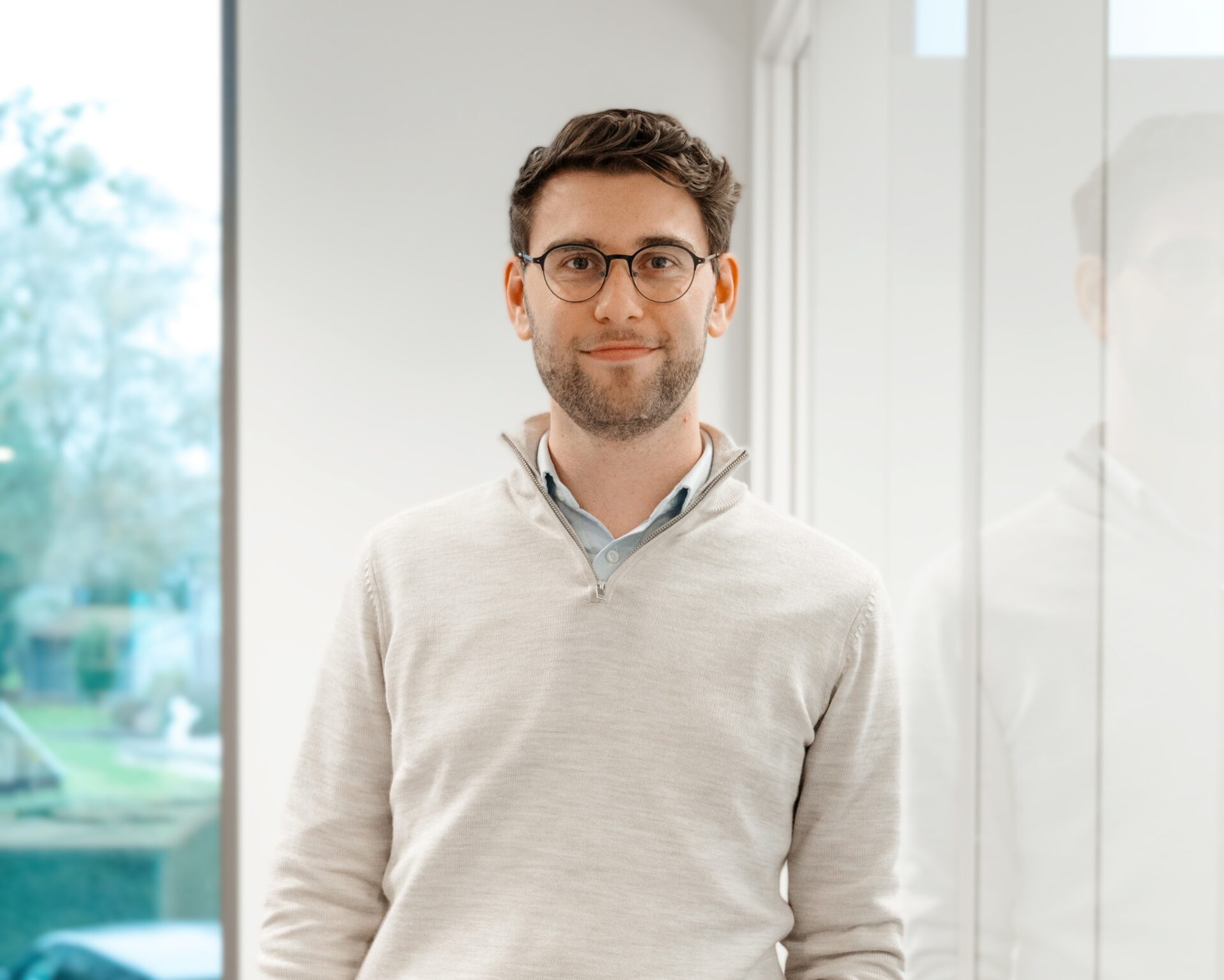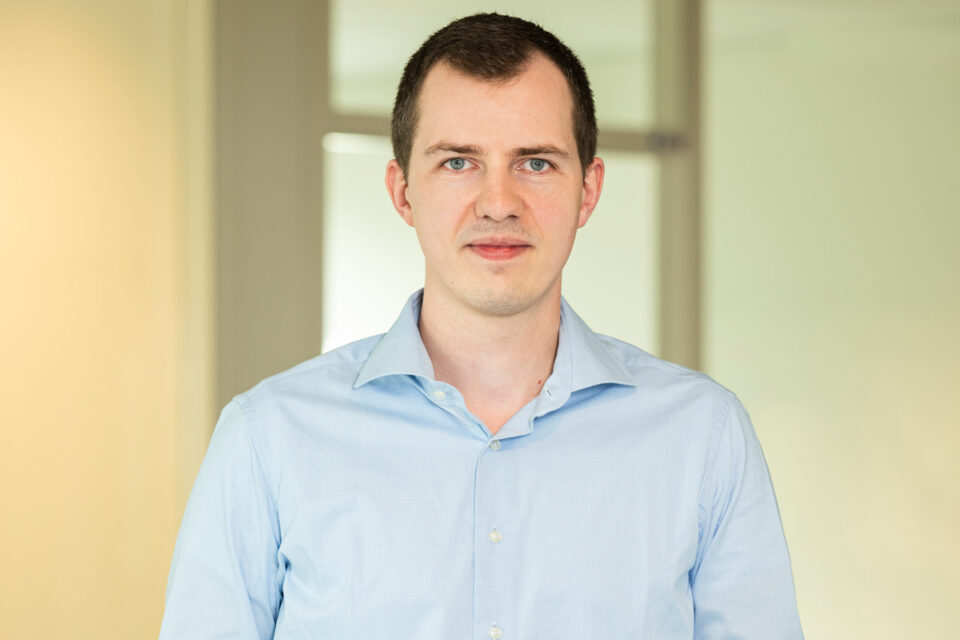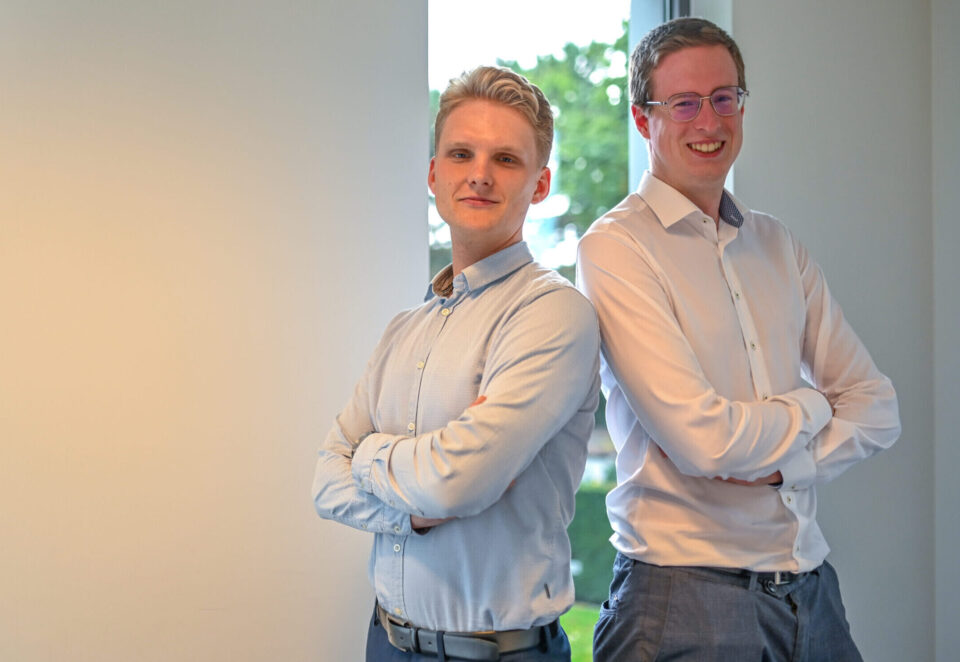The PhD advantage in consulting: Nicolas’ story

After finishing his PhD, Nicolas began searching for a new career opportunity and a supportive work community. We spoke with him about his new role at Addestino and the skills he brought from academia.
Building academic expertise
From the lecture hall to the research lab and eventually Addestino, Nicolas has always followed his own career path. It began at the civil engineering faculty of Ghent University, where he specialised in electrical engineering. “It was a perfect fit for my interests, and I loved working with hardware components like electrical circuits,” Nicolas says. With a sought-after profile, he had plenty of initial career options. “Some of my fellow students went straight into sector-specific specialist roles, such as hardware engineering or IT consulting. While consulting had also caught my eye, one of my professors offered me the chance to build on my thesis through further PhD research. I saw this chance as a once-in-a-lifetime opportunity to contribute to my field, and that’s why I took it.”
Recruitment with a personal touch
After completing his PhD, Nicolas was ready to explore new opportunities. “After spending years in specialist research, I was ready to discover what else was out there and see how I could apply my skills in new ways,” he explains. As he was wrapping up his doctorate, Joyce from Addestino’s HR team reached out to him. “What stood out to me during the application process was their personal approach, which permeates the organisational culture. That personal touch was a key factor in my decision. There’s a strong emphasis on personal connection; everyone knows each other, and there’s a well-structured system to guide newcomers through onboarding and the professional development program. Even with over 75 people on the team, the flat hierarchy ensures open communication.” Nicolas also appreciated finding colleagues with similar PhD backgrounds on his team. “It gave me the confidence that I’d feel at home, be appreciated for my strengths, and get the support I needed to grow.”
Three key PhD advantages in consulting
Nicolas believes there are several key transferable skills that facilitate the transition from academia to consulting. “Besides the obvious research expertise you build up, three things stand out to me. First, there’s the analytical thinking and problem-solving component. A PhD trains you to tackle complex issues in uncertain environments in a structured way. Secondly, there’s no better way to learn how to process large amounts of information. A PhD builds on the work and findings of others, so absorbing information quickly becomes invaluable. This skill is crucial when starting a new consulting project. Finally, there are the communication skills. Whether it’s running lab courses, tutoring students, or presenting at international conferences, academia provides plenty of opportunities to explain ideas clearly and persuasively. That edge becomes especially useful when presenting recommendations to a client’s management team or board.”
Mentorship for a confident start
“Our team has a reputation for giving new hires a strong start by assigning them to projects right away,” Nicolas continues. “This approach works because of the tight follow-up and robust support behind the scenes. What made all the difference for me, though, was the mentorship program. The HR team does an excellent job of pairing new hires with experienced team members who share similar backgrounds and interests. This helped me tremendously in finding my feet and navigating the organisation.”
Nicolas recalls some key ways his mentor, Sander, supported him during this transition. “Sander also came from academia and was familiar with my first client, which was a huge advantage. He helped me navigate the key differences between academia and consulting, especially when it came to dealing with complex organisations and multiple stakeholders. He also shared valuable tips on adapting to a more top-down presentation approach, with an emphasis on storytelling that resonates with decision-makers.
Options for a versatile career
Nicolas’s primary assignment has been a project with a key client in the financial services sector. “This first role is an analyst position at the client’s data analytics office, building on our previous work for them. My PhD background has been a big help in finding my way in the complexity of their data. On top of that, I’m also involved in a smaller side project in the public sector, which provides a nice and refreshing change.”
Nicolas points out the added value his combined career path has brought him so far. “Starting with deep technical expertise has been incredibly useful, and applying it across a broader field now makes my work even more rewarding. My academic skills have been highly transferable, and they add a lot of depth to consulting if you’re open to adapting and learning on the job every day.”
When it comes to his career, Nicolas prefers to take things one step at a time. “There’s plenty of variety and flexibility in my consulting career track. I can feel myself gradually growing into a more senior role, taking on responsibilities as I go. I enjoy working with different clients and splitting my time between remote work, on-site projects and our head office in Zele. It’s an excellent foundation to keep my future possibilities open.”


